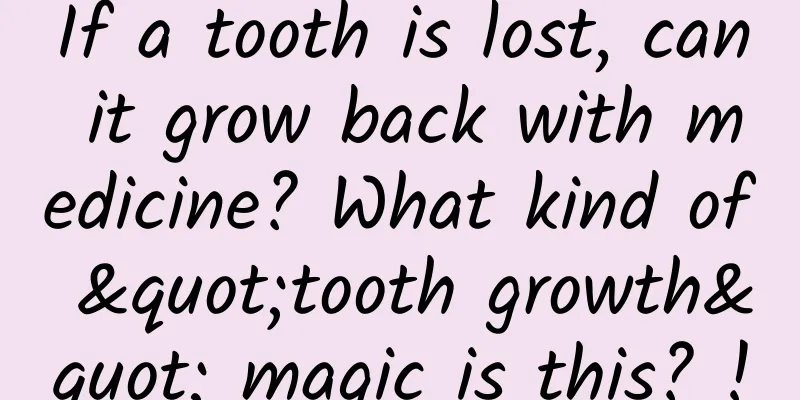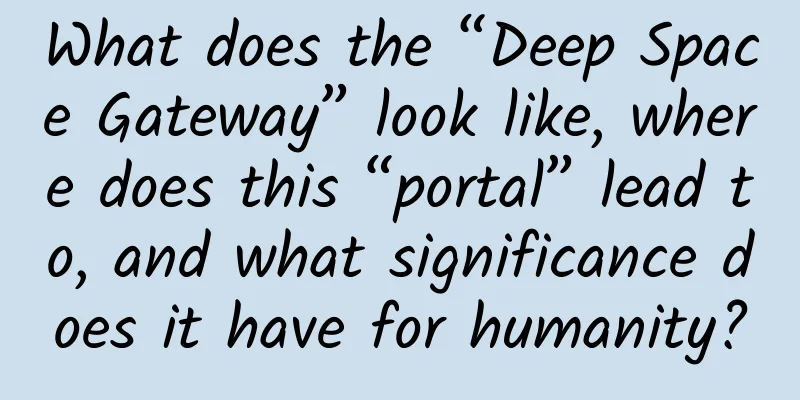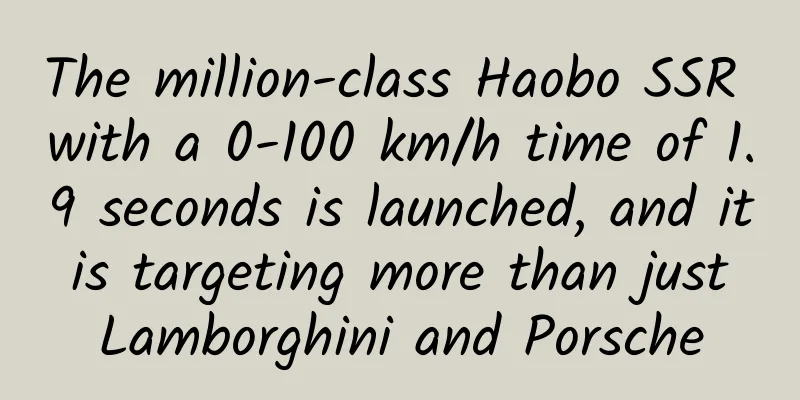If a tooth is lost, can it grow back with medicine? What kind of "tooth growth" magic is this? !

|
Author: Huang Yanhong, Huang Xianghong, Duan Yuechu Teeth are vital to our daily lives. However, whether it is congenital tooth loss or tooth loss due to tooth decay, injury, etc., it brings a lot of inconvenience to people. Although common treatments such as dentures and dental implants can make up for missing teeth to a certain extent, they are ultimately not comparable to naturally grown teeth. However, a recent new study by Japanese scientists may bring a new solution to this problem. During the long process of evolution, mammals, including humans, gradually lost the ability to continuously regenerate teeth like sharks. For some rodents, such as mice, they only have one set of teeth in their lifetime, and once the teeth fall out, they cannot regenerate. In contrast, humans are in a slightly better situation. They grow deciduous teeth during infancy and are later replaced by permanent teeth. Once permanent teeth are lost, new teeth usually do not grow out. Katsushi Takahashi, chief researcher and chief of dental and oral surgery at Kitano Hospital, the Institute of Medical Sciences in Osaka, Japan, has been working on finding a way to help people regrow teeth since he was a bachelor's student in dental medicine and later as a graduate student in molecular biology. Many people in the world are born with missing teeth, which causes great trouble in their lives. Congenital tooth loss may be caused by genetic defects or environmental factors in early development, such as viral infections. Over the years, researchers around the world have discovered some genes related to tooth loss. Around 2005, Takahashi returned to Japan to continue his research and made an important discovery in a disease that is the opposite of tooth loss: "excessive teeth." Previous studies have shown that mice that lack the gene that synthesizes the USAG-1 protein have more teeth. After years of exploration, Takahashi's research team has clarified the mechanism. Usually, deciduous teeth are called the "first dentition" and permanent teeth (except molars) belong to the "second dentition". Generally, there will be no new teeth after these two rows of teeth. However, some studies have pointed out that humans and some mammals have the potential to develop new dentition epithelial tooth bases on the tongue side of permanent teeth, but they will die during growth under normal circumstances. The USAG-1 protein can inhibit bone morphogenetic protein (BMP) and Wnt during tooth development. Patients or mice with "excessive teeth" often have defects in the gene encoding USAG-1, which prevents BMP and Wnt signals from being effectively inhibited, resulting in the growth of some new teeth. Based on this discovery, Takahashi's team successfully developed a neutralizing antibody that can inhibit the binding of USAG-1 to BMP in 2018, and was successful in experiments on mice and ferrets, allowing them to grow normal-shaped teeth with no side effects. Now, they have further developed TR035, a tooth growth drug for humans, and have been approved by relevant Japanese agencies to conduct Phase I clinical trials from September 2024 to August 2025. First, they will recruit men aged 30 to 65 with one or more missing molars for a single-dose, double-blind, placebo-controlled trial to confirm the safety of the drug. Next, they will recruit patients aged 2 to 7 with 4 or more congenitally missing teeth to explore the effect of the drug. The research team is confident that this drug will not only help people born without teeth grow teeth in the future, but also help those who have lost teeth due to tooth decay or injury to regenerate teeth. According to the plan, the drug is expected to be available on the market in 2030. This research result undoubtedly brings new hope to many patients with missing teeth. Perhaps in the near future, humans no longer need to envy sharks' tooth regeneration ability, but can rely on the power of science to regain complete and healthy teeth. Let us look forward to this dream becoming a reality soon. |
<<: Is it true that we cannot use air conditioning all the time in summer?
>>: Why do people drink ice beer when eating crayfish, but no one drinks ice liquor?
Recommend
iOS 12.3 released to support AirPlay 2-enabled TVs
After six rounds of beta testing, Apple finally r...
After reading this article, don’t say curling is just mopping the floor anymore!
Mixed Knowledge Specially designed to cure confus...
Want to do a good job in Apple Store ASO? Android store must be taken seriously!
Today we are still talking about ASO . When it co...
How do huge surface ships evade sensitive radar?
With the development of modern detection equipmen...
Overview of the public platform message body signature and encryption and decryption solution
Overview of the public platform message body sign...
How does operations perform data analysis? Share 5 basic steps!
After looking at a lot of growth cases, and then ...
Where does the water on Earth come from? my country's latest scientific research results provide new ideas for understanding the evolution of life
Image source: Tuchong Creative There are many dif...
National security is not a distant "spy movie", but is closely related to each of us!
April 15th of every year is National Security Edu...
Is it a tragedy that China Unicom and China Telecom do not have FDD licenses in the 4G era?
Recently, the online article "China Unicom fo...
A famous singer has passed away! This type of cancer is usually discovered in the late stages, and it is dangerous if the waist circumference exceeds this number...
Cheng Zhi, a famous tenor singer and first-class ...
Kingdee Cloud Developer Conference: Mobile work platform ushered in a year of explosive growth
From January 15th to 16th, the first Kingdee Clou...
Swimming mice, bulbous-nosed fish: Scientists discover 27 new species of creatures in unexpected places
Located in northern Peru, between the Amazon rain...
The latest news on the epidemic in Huaihua, Hunan in 2022: Is the city under lockdown? When will the ban be lifted?
Recently, Changsha, Yueyang, Huaihua and other pl...
Mobile QQ launches a fun feature: can display the other party's real-time battery level
As the most classic chat software in China, QQ is...









